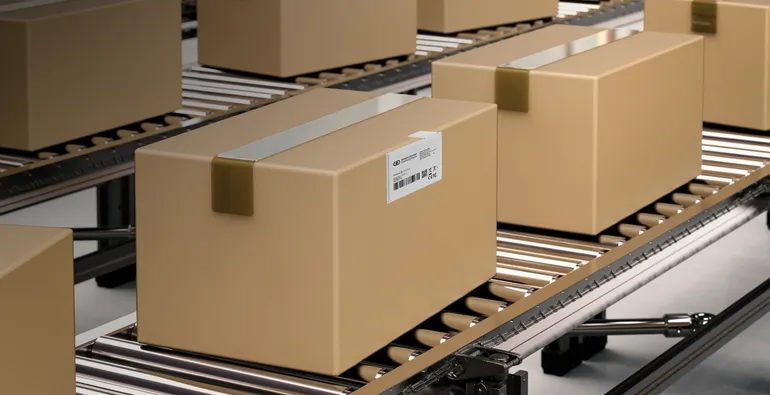A new smart label that producers can use to track agricultural goods, such as fruits and vegetables, more effectively throughout their supply chains, is launching from global security technology company Giesecke+Devrient
The label aims to help agriculture stakeholders better address product quality and traceability issues as food recalls surge in the United States. Some food processors and distributors also face looming requirements in 2026 from the Food and Drug Administration to implement recordkeeping and traceability measures that would allow for faster identification of contaminated food on the market.
The G+D Smart Label, a sticker slightly larger than a credit card, essentially turns any package into an Internet of Things device offering improved shipment visibility, security and accounting.
“If you take fruit, for example, and you want to know that it’s arrived at the same sort of temperature state that it’s been transported in, or if there’s been any major fluctuations, this is something that we see as very, very important,” Sharath Muddaiah, head of portfolio strategy for IOT Solutions at G+D, told Mekong Farmer
Muddaiah said he hopes the peel-and-stick labels can be a cost-effective, simplified solution for customers looking for a one-stop shop IOT provider.
The labels have high-tech sensors that can track motion, temperature and tampering for automated proof of delivery, and are useful for a host of industries including agriculture. Food companies can use the data to address shipping challenges and better understand what is happening to their products across the value chain.
“If there’s any change, let’s say the ingredients of the package are actually disturbed by this change in temperature, these values are reported in real time,” he added.
G+D has worked in the IOT space since 2017 and, in addition to smart labels, sells SIM cards that connect devices to cellular networks. The German giant has also worked to create an all-in-one solution for customers.
Other smart labels on the market can be cumbersome since competitors need to establish return logistics for repeated use, Muddaiah noted. Troubleshooting is also challenging, as customers rely on various companies for IoT hardware, connectivity, and software.
“It’s all about simplicity,” Muddaiah said. “That’s currently where we see the biggest advantage in our offering.”
Radio-frequency identification, or RFID, has become a popular solution for distributors and food service providers to provide insight into their products. More than half of the top 27 food service companies are looking into RFID, Jon Gregory, director of community engagement at GS1, a supply chain standards organization, told sister publication Packaging Dive in September 2023.
Although there’s been emerging potential for this technology in the food industry, recyclability and cost concerns remain big barriers. Because food products have shorter shelf lives, the devices tracking them can only be used for a limited amount of time.
In addition to their slim design, G+D’s smart labels also have a non-rechargeable battery that works up to 90 days, Muddaiah said. They are also single-use and eliminate the need for return logistics. Each label costs about $59.



